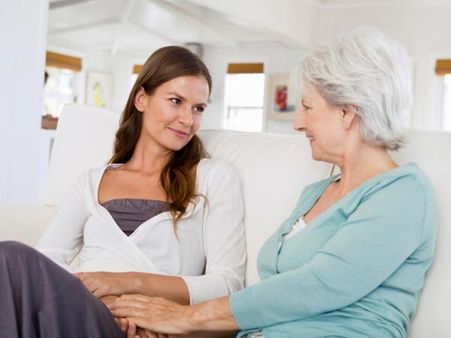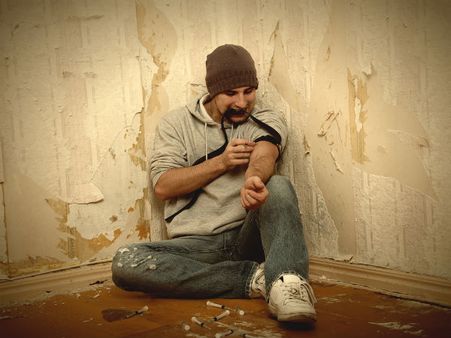Just In
- 3 hrs ago

- 7 hrs ago

- 11 hrs ago

- 14 hrs ago

Don't Miss
- Finance
 LIC New Jeevan Shanti 858 Plan: How To Earn Rs 10,000 Pension Per Month After Retirement? Check Eligibility!
LIC New Jeevan Shanti 858 Plan: How To Earn Rs 10,000 Pension Per Month After Retirement? Check Eligibility! - Sports
 PBKS vs MI, IPL 2024: 'Jasprit Bumrah is the Greatest Match Winner' - Twitter Hails MI Pacer after Amazing Bowling
PBKS vs MI, IPL 2024: 'Jasprit Bumrah is the Greatest Match Winner' - Twitter Hails MI Pacer after Amazing Bowling - News
 Jailed Former Maldives President Abdulla Yameen Released, Court Orders Fresh Trial In Bribe Case
Jailed Former Maldives President Abdulla Yameen Released, Court Orders Fresh Trial In Bribe Case - Movies
 Yeh Rishta Kya Kehlata Hai Controversy: YRKKH Actor Makes BIG Revelation About Shehzada Dhami: Alag Dhang Se K
Yeh Rishta Kya Kehlata Hai Controversy: YRKKH Actor Makes BIG Revelation About Shehzada Dhami: Alag Dhang Se K - Automobiles
 Aprilia RS 457 Accessories: A Detailed Look At The Prices
Aprilia RS 457 Accessories: A Detailed Look At The Prices - Education
 Karnataka SSLC Result 2024 Soon, Know How to Check Through Website, SMS and Digilocker
Karnataka SSLC Result 2024 Soon, Know How to Check Through Website, SMS and Digilocker - Technology
 Nothing Ear, Ear a With ANC, Up to 42.5 Hours of Battery Launched; Check Price and Availability
Nothing Ear, Ear a With ANC, Up to 42.5 Hours of Battery Launched; Check Price and Availability - Travel
Telangana's Waterfall: A Serene Escape Into Nature's Marvels
10 Ways To Cope With An Addict In The Family
Addicts are manipulative, destructive and dramatic. They can lie to you to achieve their own ends, and yet, when they are clean, you remember why you loved them in the first place.
You may empathise with their 'weakness' and feel a compelling need to help. But, helping addicts is not easy. Often, the addict uses your helpfulness against you. They may even blame their addiction on you. You may end up walking on fire trying not to trigger their addictions, particularly if they are violent.
Today, we’re looking at 10 ways to help addicts and their families to cope with addiction. Before you go through these 10 ways to help addicts, evaluate what stage the addict in your life is. Have they acknowledged they have a problem? Are they committed to recovery and seeking professional help? Do they understand that they have no control over their addiction? Do they keep relapsing, thinking they will have a different outcome each time?
Whether
you’re
dealing
with
an
addict
in
denial,
recovery
or
relapse,
take
a
look
at
these
10
ways
to
help
addicts.
You
may
pick
up
some
pointers
on
coping
or
reiterate
what
you
already
know.
These
10
ways
to
help
addicts
and
their
families
cope
with
the
ravages
of
addiction
may
make
a
positive
difference
in
your
life.

Recognise that addiction is a disease
This will help you and the addict gain perspective, without evading responsibility. Labelling addiction as a disease will make it seem more realistic to manage.

Get professional help
Don't attempt to 'cure' the addict through love. Leave the rehabilitation part of helping addicts to medical and mental health professionals. Get regular counselling, together and separately.

Understand
One of the top 10 ways to help addicts is to read and talk about the nature of addiction. Knowledge demystifies and helps you cope better.

Join support groups
Alcoholics Anonymous (AA) and Narcotics Anonymous (NA), among others, do a tremendous job of helping addicts. Research shows that addicts on support groups perform significantly better and relapse less.

Live your life
You have little control over the addict's behaviour, so avoid the co-dependent trap: becoming lethargic, falling apart, losing interest, or paying less attention to your children. Don't let the addiction consume you too.

Surround yourself with friends
As the addict's spouse, parent or offspring, it's crucial that you have non-judgemental folk to lend you an ear or shoulder. For your part, try not to be too needy.

Don’t rush to the rescue
One of the 10 ways to help addicts is by being not helpful. Addicts assume and expect you to provide them money or keep hauling them to detox. Wait, think and decide before you act to define your boundaries.

Don’t belittle the addict
A crucial part of helping addicts who are committed to recovery is giving them respect. Don't treat them as less than human, or impaired.

Watch out for addictive behaviour
Sometimes, the addict may stop their addiction, but find an outlet in other compulsive behaviour, such as shopping, porn or gambling. You must alert your counsellor at once.

Acknowledge positive behaviour
If they're trying to stay clean or sober, don't keep bringing up their past misdemeanours. If you're sincere about helping addicts, move forward.
-
 kidsIs Your Kid Addicted To Sugar? What Are The Signs?
kidsIs Your Kid Addicted To Sugar? What Are The Signs? -
 wellness1.58 Crore 10-17-Year-Olds Addicted: Tips For Staying Drug Free
wellness1.58 Crore 10-17-Year-Olds Addicted: Tips For Staying Drug Free -
 wellnessList Of Foods That Help Manage Drug And Alcohol Cravings
wellnessList Of Foods That Help Manage Drug And Alcohol Cravings -
 lifeFinding Ways To Stop Smartphone Addiction? Here Are 9 Tips That Can Help You
lifeFinding Ways To Stop Smartphone Addiction? Here Are 9 Tips That Can Help You -
 pulseTeen Becomes Mentally Disabled After Using Mobile Phone For Long Hours
pulseTeen Becomes Mentally Disabled After Using Mobile Phone For Long Hours -
 pulseFirefighters Had To Break Open The Car After Boy Refused To Open The Car Door
pulseFirefighters Had To Break Open The Car After Boy Refused To Open The Car Door -
 pulseMan Suffers From Gout Due To Beer Addiction
pulseMan Suffers From Gout Due To Beer Addiction -
 lifeThis Woman Is Addicted To Sex And Is Not Satisfied Even After A 7-hour Session!
lifeThis Woman Is Addicted To Sex And Is Not Satisfied Even After A 7-hour Session! -
 wellnessAlcohol Promotes Disease By Altering Oral Bacteria
wellnessAlcohol Promotes Disease By Altering Oral Bacteria -
 wellnessNeurochemistry Of Addiction And How Yoga Can Help
wellnessNeurochemistry Of Addiction And How Yoga Can Help -
 disorders cureWhat Is ‘Gaming Addiction’? What Are Its Symptoms & Treatment?
disorders cureWhat Is ‘Gaming Addiction’? What Are Its Symptoms & Treatment? -
 wellness8 Signs You Are Eating Too Much Sugar
wellness8 Signs You Are Eating Too Much Sugar


 Click it and Unblock the Notifications
Click it and Unblock the Notifications



